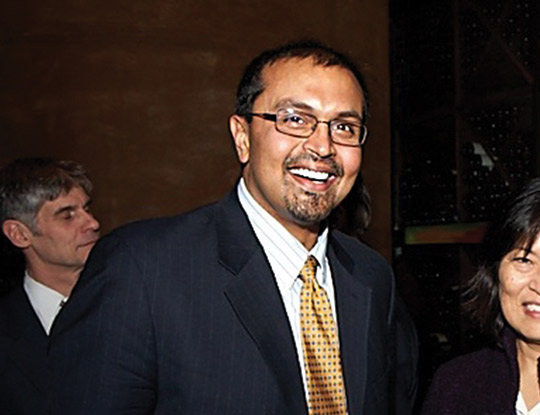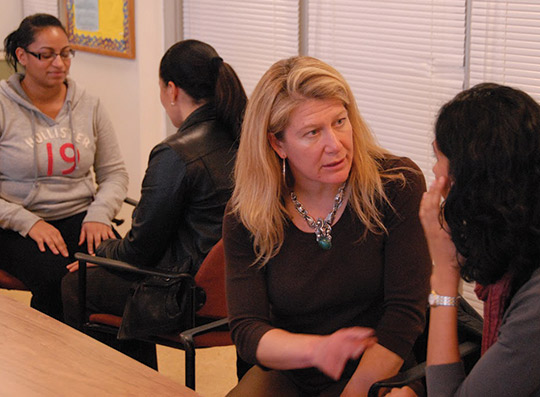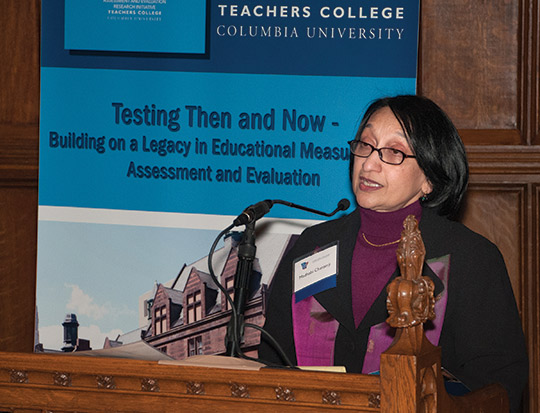Faculty News
Faculty News
ED HEAD FOR THE FED
Anand R. Marri, Associate Professor of Social Studies and Education, has been named Vice President and Head of Economic Education for the Federal Reserve Bank of New York. Marri now serves as the Fed’s highest-ranking officer for education nationwide.
In 2010, Marri led the development of “Understanding Fiscal Responsibility: A Curriculum for Teaching about the Federal Budget, National Debt and Budget Deficit.” More recently he created The Cowin Financial Literacy Project, a professional development program for teachers funded by TC Trustee Joyce Cowin that is now expanding nationwide.
In his new role, for which he has taken a research leave from TC, Marri oversees programs to improve public knowledge about the bank’s role and monetary policy, provide professional development to university faculty, and interest young people in economics and finance careers. He also directs the museum at the bank’s headquarters in New York City.
SPIRITUALITY AS ANTIDEPRESSANT
A study by Lisa Miller, Professor of Psychology and Education, has found that people who accorded religion or spirituality importance in their lives had a thicker brain cortex than nonbelievers who were at high risk for depression. Cortical thinning has been previously linked with depression.
“The new study links this extremely large protective benefit of spirituality or religion to previous studies that identified large expanses of cortical thinning in specific regions of the brain in adult offspring of families at high risk for major depression,” said Miller, Director of TC’s Spirituality Mind Body Institute.
In 2012, Miller found a 90 percent decrease in “major depression” in spiritually inclined adult children of depressed parents.
EXPLORING TC’S LEGACY IN TESTING
“Testing Then and Now,” a conference in early December hosted by TC’s Assessment and Evaluation Research Initiative (AERI), traced the historical roots of educational assessment — a field launched at the College — and sought to bridge the gap between the psychometricians who design tests and the policymakers and educators who implement them.
AERI Director Madhabi Chatterji, Associate Professor of Measurement, Evaluation & Education, called for greater understanding of the contexts in which tests are administered and for the use of tests for the purposes for which they were designed. “Validity, test use and consequences are inseparable,” she said.
“Assessment has become the driver of education,” said Edmund W. Gordon, Professor Emeritus and Chair of The Gordon Commission on the Future of Assessment in Education, which co-sponsored the event. “If we don’t get assessment right, I suspect we won’t get education right.”
Published Tuesday, Jun. 3, 2014


